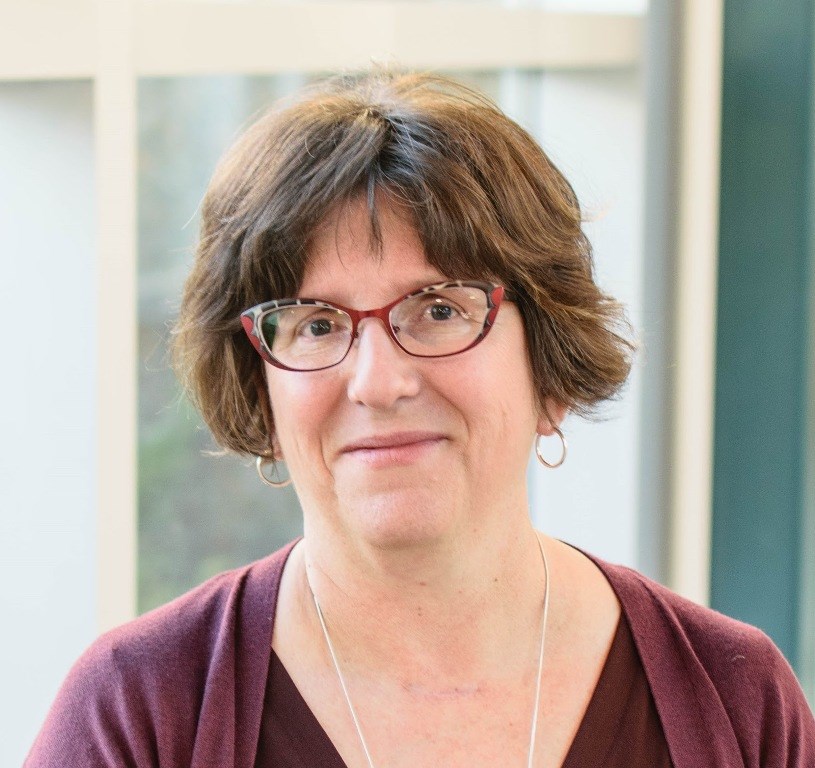Joanne Weber, daughter of Ed and Lois Weber of Wilkie, has been named as the first-ever research chair in deaf education.
The focus of her work and research is the impact of thearts on language and literacy outcomes for deaf children and youth. Arts education and exploration were major components of Weber’s own early education and experiences.
Weber is profoundly deaf and says she was mainstreamed in regular education classes for most of her schooling. She grew up in Wilkie, attending Norman Carter School and McLurg High School during the early 1960s and ‘70s. Her parents both taught in Wilkie.
“My parents emphasized the arts during early childhood. They also took classes in deaf education at Minot State College in North Dakota in the summers to help further my language skills,” Weber says.
Following high school graduation, Weber attended the University of Saskatchewan and obtained honours bachelor of arts degrees in English and philosophy as well as a BEd. At Edmonton she earned a master’s in library science at the University of Alberta, followed by a PhD from the University of Regina. She was awarded the Governor General’s Academic Gold Medal for her work in arts-based language and literacy intervention with deaf students.
In 1988, she decided to explore her own deaf “experience,” learning sign language and attending Gallaudet University during the 1988 Deaf President Now movement. This year enabled her to achieve certification from the Saskatchewan Ministry of Education to teach deaf children.
She taught at the R.J.D. Williams Provincial School for the Deaf in Saskatoon before it closed in 1991. She took on a number of short-term jobs, one of which was the co-ordinator of literacy programs and university programs at North West Regional College. Then she moved to Regina and taught for Regina Public Schools in a deaf education resource program at Thom Collegiate and later at Winston Knoll Collegiate. Seventeen years later, she resigned from that position on June 30, 2020 and accepted the offer of the Canada Research Council Chair (Tier 2) at the University of Alberta on July 1, 2020.
Weber and her husband, Murray Valiaho, are still living in Regina, but they plan to also establish a residence in Edmonton when COVID-19 restrictions are lifted. Right now, Weber is teaching and researching virtually from Regina.
At the University of Alberta, Weber will explore how the arts can contribute to increase language and literacy outcomes for deaf children and youth.
“Despite intensive auditory training and being a dedicated hearing aid user, I was never able to develop language by just sitting in a classroom for five hours every day,” Weber says.
“I didn’t have enough hearing to do that. I couldn’t hear teachers or classmates, only muffled sounds emanating from their voices. I developed a love for books and was able to read to fill in the gaps left by not being able to hear in the classroom.”
Her parents were focused on developing her cognitive skills in addition to language skills. She had her own paint easel, costumes, danced to her father’s saxophone and attended many plays.
“At that time, Unity and Wilkie had so many children with hearing losses that the parents got together to form a group that lobbied the Government of Saskatchewan for help for their children,” Weber explains.
The parent group eventually set up pre-schools in each town. Dr. Mervin Ashing of Unity and Louise Stang of Wilkie were involved. At first the Red Cross funded these two pre-schools. Weber received speech therapy once a month from Mrs. Burill in Unity for a few years during her elementary schooling. She remembers how Mrs. Burrill made her memorize and recite poetry.
“Our family always viewed the arts as a way to build community and relationships. None of us are celebrity level artists and that was never our goal,” she says.
“My grandmother became a teacher and a visual artist while my grandfather played the violin at many dances in northern Saskatchewan. My father played big band music at dances and concerts in Wilkie. My mother has a lovely singing voice and sang in church choirs. My brother David Weber, who teaches at St. Peter’s School in Unity, plays a mean guitar with Danny and the Dusters and is a writer and visual artist. My sister, Ruth Weber, is a superintendent of the Living Sky School Division and has directed a junior choir for over 30 years.
“My youngest sister, Carol Keller, plays a ukulele, sings, writes and acts in plays in North Battleford. She is also a teacher aid in a school in that city. My children (including my stepsons) are involved in bands, piano and choir.
“My daughters and my husband are teachers as well. I also have numerous nieces and nephews who are gifted musicians (violin, drums, saxophone, trombone and trumpet), writers (plays, musicals) and artists (visual art and photography).”
Weber says grandchildren of Ed and Lois used to play together for years on a farm outside of Scott, and armed with a video camera, wrote their own scripts, acted and edited their own movies. The arts never seem to have left their blood and this emphasis on community building is reflected in Weber’s niece, Rachel Cey’s Home to Heart Facebook page that celebrates the artistic contributions of the Wilkie and Unity community as well as surrounding areas.
“As well, the deaf community has its own literary and artistic traditions that contribute to its vibrant culture and language resources. I hope to capitalize upon community art making in my research,” Weber says.
More about Weber’s research can be accessed at: .




